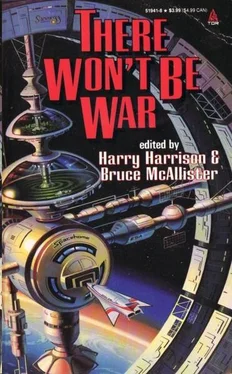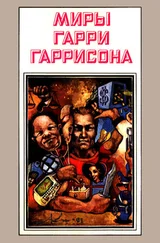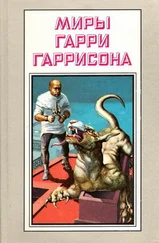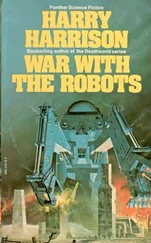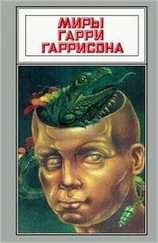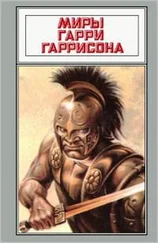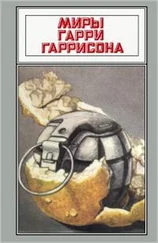As he lay down in the bunker he dimly heard the aircraft return and carry out an inspection of the site.
A Belated Rescue
“Who are you?” A small sandy-haired man was peering down at him with a severe expression, then put away a syringe in his valise. “Do you realize you’re on your last legs?”
“Traven ... I’ve had some sort of accident. I’m glad you flew over.”
“I’m sure you are. Why didn’t you use our emergency radio? Anyway, we’ll call the Navy and have you picked up.”
“No ...” Traven sat up on one elbow and felt weakly in his hip pocket. “I have a pass somewhere. I’m carrying out research.”
“Into what?” The question assumed a complete understanding of Traven’s motives. Traven lay in the shade beside the bunker, and drank weakly from a canteen as Dr. Osborne dressed his foot.
“You’ve also been stealing our stores.”
Traven shook his head. Fifty yards away the blue and white Cessna stood on the concrete apron like a large dragonfly. “I didn’t realize you were coming back.”
“You must be in a trance.”
The young woman at the controls of the aircraft climbed from the cockpit and walked over to them, glancing at the gray bunkers and blocks. She seemed unaware of or uninterested in the decrepit figure of Traven. Osborne spoke to her over his shoulder, and after a downward glance at Traven she went back to the aircraft. As she turned Traven rose involuntarily, recognizing the child in the photograph he had pinned to the wall. Then he remembered that the magazine could not have been more than four or five years old.
The engine of the aircraft started. It turned onto one of the roadways and took off into the wind.
* * *
The young woman drove over by jeep that afternoon with a small camp bed and a canvas awning. During the intervening hours Traven had slept, and woke refreshed when Osborne returned from his scrutiny of the surrounding dunes.
“What are you doing here?” the young woman asked as she secured one of the guy ropes to the bunker.
“I’m searching for my wife and son,” Traven said.
“They’re on this island?” Surprised, but taking the reply at face value, she looked around her. “Here?”
“In a manner of speaking.”
After inspecting the bunker, Osborne joined them. “The child in the photograph. Is she your daughter?”
“No.” Traven tried to explain. “She’s adopted me.”
Unable to make sense of his replies, but accepting his assurances that he would leave the island, Osborne and the young woman returned to their camp. Each day Osborne returned to change the dressing, driven by the young woman, who seemed to grasp the role cast for her by Traven in his private mythology. Osborne, when he learned of Traven’s previous career as a military pilot, assumed that he was a latter-day martyr left high and dry by the moratorium on thermonuclear tests.
“A guilt complex isn’t an indiscriminate supply of moral sanctions. I think you may be overstretching yours.”
When he mentioned the name Eatherly, Traven shook his head.
Undeterred, Osborne pressed: “Are you sure you’re not making similar use of the image of Eniwetok—waiting for your pentecostal wind?”
“Believe me, Doctor, no.” Traven replied firmly. “For me the H-bomb is a symbol of absolute freedom. Unlike Eatherly I feel it’s given me the right—the obligation, even—to do anything I choose.”
“That seems strange logic,” Osborne commented. “At least we are responsible for our physical selves.”
Traven shrugged. “Not now, I think. After all, aren’t we in effect men raised from the dead?”
Often, however, he thought of Eatherly: the prototypal Pre-Third Man, dating the Pre-Third from August 6, 1945, carrying a full load of cosmic guilt.
Shortly after Traven was strong enough to walk again he had to be rescued from the blocks for a second time. Osborne became less conciliatory.
“Our work is almost complete,” he warned Traven. “You’ll die here. Traven, what are you looking for?”
To himself Traven said: the tomb of the unknown civilian, Homo hydrogenensis, Eniwetock Man. To Osborne he said; “Doctor, your laboratory is at the wrong end of this island.”
“I’m aware of that, Traven. There are rarer fish swimming in your head than in any submarine pen.”
On the day before they left, Traven and the young woman drove over to the lakes where he had first arrived. As a final present from Osborne, an ironic gesture unexpected from the elderly biologist, she had brought the correct list of legends for the chromosome charts. They stopped by the derelict jukebox and she pasted them on to the selection panel.
They wandered among the supine wrecks of the Superfortresses. Traven lost sight of her, and for the next ten minutes searched in and out of the dunes. He found her standing in a small amphitheater formed by the sloping mirrors of a solar energy device, built by one of the visiting expeditions. She smiled to him as he stepped through the scaffolding. A dozen fragmented images of herself were reflected in the broken panes. In some she was sans head, in others multiples of her raised arms circled her like those of a Hindu goddess. Exhausted, Traven turned away and walked back to the jeep.
As they drove away he described his glimpses of his wife and son. ‘Their faces are always calm. My son’s particularly, although he was never really like. that. The only time his face was grave was when he was being born—then he seemed millions of years old.”
The young woman nodded. “I hope you find them.” As an afterthought she added: “Dr. Osborne is going to tell the Navy you’re here. Hide somewhere.”
Traven thanked her. When she flew away from the island for the last time he waved to her from his seat beside the blocks.
The Naval Party
When the search party came for him Traven hid in the only logical place. Fortunately the search was perfunctory, and was called off after a few hours. The sailors had brought a supply of beer with them, and the search soon turned into a drunken ramble. On the walls of the recording towers Traven later found balloons of obscene dialogue chalked into the mouths of the shadow figures, giving their postures the priapic gaiety of the dancers in cave drawings.
The climax of the party was the ignition of a store of gasoline in an underground tank near the airstrip. As he listened, first to the megaphones shouting his name, the echoes receding among the dunes like the forlorn calls of dying birds, then to the boom of the explosion and the laughter as the landing craft left, Traven felt a premonition that these were the last sounds he would hear.
He had hidden in one of the target basins, lying down among the bodies of the plastic dummies. In the hot sunlight their deformed faces gaped at him sightlessly from the tangle of limbs, their blurred smiles like those of the soundlessly laughing dead. Their faces filled his mind as he climbed over the bodies and returned to the bunker.
As he walked toward the blocks he saw the figures of his wife and son standing in his path. They were less than ten yards from him, their white faces watching him with a look of almost overwhelming expectantcy. Never had Traven seen them so close to the blocks. His wife’s pale features seemed illuminated from within, her lips parted as if in greeting, one hand raised to take his own. His son’s grave face, with its curiously fixed expression, regarded him with the same enigmatic smile as the girl in the photograph.
“Judith! David!” Startled, Traven ran forward to them. Then, in a sudden movement of light, their clothes turned into shrouds, and he saw the wounds that disfigured their necks and chests. Appalled, he cried out to them. As they vanished he fled into the safety and sanity of the blocks.
Читать дальше
